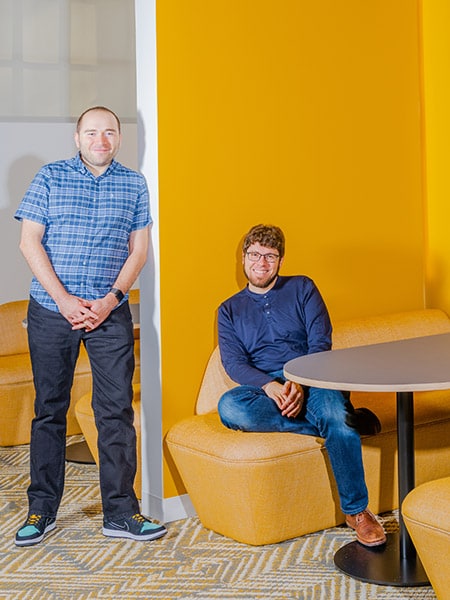
How discord, born from an obscure game, became a social hub for young people
While adults working from home flocked to Zoom, their children were downloading Discord to socialise with other young people through text and audio and video calls in groups known as servers
 Stanislav Vishnevskiy, left, and Jason Citron, co-founders of Discord, at the social hub’s offices in San Francisco, Dec. 20, 2021. Six years after Citron stripped his unsuccessful online game down to just its chat feature and named it Discord, it has exploded in popularity with young people who socialize on it through text and audio and video calls in groups known as servers.
Stanislav Vishnevskiy, left, and Jason Citron, co-founders of Discord, at the social hub’s offices in San Francisco, Dec. 20, 2021. Six years after Citron stripped his unsuccessful online game down to just its chat feature and named it Discord, it has exploded in popularity with young people who socialize on it through text and audio and video calls in groups known as servers.
Image: Kelsey McClellan/The New York Times
Circuits
In 2015, Jason Citron, a computer programmer, was struggling to break through in the video game industry. The new multiplayer game he had created with his development studio, Hammer & Chisel, was not catching on.
So Citron engineered an abrupt about-face. He laid off his company’s game developers, turned the game’s chatting feature into its sole product and gave it a mysterious name — Discord.
“I think at the time we had maybe six users,” Citron said. “It wasn’t clear that it was going to work.”
©2019 New York Times News Service







